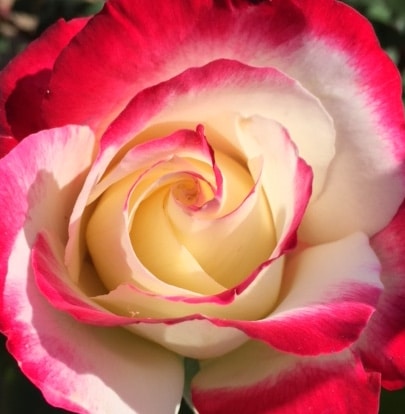Many wisdom traditions offer us step-by-step formulas to attain higher levels of health, inner peace or enlightenment. I often shy away from formulas as they seem to trivialize the effort required to truly create a change within. That said, when I came across some of my notes from a retreat I attended with Jane Jin in 2010, I felt the approach she outlined could be very helpful for new students who are looking for ways to integrate qigong into their lives. It also serves the serious explorers of qigong because of the potential for human transformation. This approach offers a solid foundation, which is necessary for deriving the best benefit from qigong practices.
- Strong Belief: In Jane’s words “You must believe, without doubt, from the bottom of your heart that you have the ability to heal. You have to believe in your own mind power. You are the master of yourself. You are the governor of your blood and life qi.” She goes on to say that you must join your belief with self-confidence. All living things have the inherent ability to self-heal. We were born with this ability. We see basic evidence of this regularly when we recover from a cold or cut. However, we are often told otherwise in our society and culture. This has furthered our loss of connection with nature and our own wisdom. The ability to regenerate our bodies and/or change cellular structure is innate. We must also believe that we are able to be receivers of information and energy from teachers, nature and healers. We must use our own initiative to receive. This can be done by thinking of ‘opening the door and inviting qi in’.
- Positive Attitude: You will be more successful if you think positively rather than negatively. Living with a positive attitude is better than a negative one in that it creates a more desirable and resourceful frame of reference. Believing you can empowers you to take effective action. In truth, it is the action, not the thought that is important. Rather than cultivating the capacity to think “good thoughts”, cultivate the ability to choose what thoughts are useful and which are not. Like many wisdom traditions, qigong wisdom maintains that everything is connected, so naturally your life will seem better if seen through the eyes of positive attitude. It is often this simple: if you are kind, people will be kind to you. This positive way of looking at life liberates our mind and heart.
- Commitment to persistent practice: When you begin a new practice, for the most rapid and greatest benefit, you have to practice every day. It’s a fact. There is no way around it.
- Rational combination and good balance: Qigong offers us many different types of practices. Not every practice is the most effective for everyone all the time. For example, some people have difficulty finding relaxation during seated meditation; therefore, a moving meditation would likely be more effective. You have to listen to your own body wisdom and think about your own level to customize your practice for the most benefit. You can balance your practices with movement (qigong forms and physical exercise), breathing exercises, meditation, limb stretching as well as supporting yourself with abundant nourishment and rest.
- Group practice: Group practice is very powerful for healing and support. Dr. Pang established the technique of using the group to create and amplify a strong energy field. Group experience sharing is also a unique aspect of Zhineng Qigong. It is a teaching/learning method that creates community, thereby strengthening our connection to each other and to all living beings.
- Change Your Lifestyle: I believe this message is clearest in Jane’s words: “You must get rid of your bad habits: harmful diet, too much sex, drinking, and night life. You have to change your bad habits. For very serious illnesses you should not drink alcohol, have sex, or eat food with too much nutrition.”
- Mind Cultivation: The actual movement and meditation practices are just a small part of self-healing. We need to recognize that our mental and psychological health is equally, if not more important, in cultivating self-healing. Jane reminds us that, “We need to be tolerant, practical, and realistic. It is important not to be too ambitious or too picky about things around you. Keep a peaceful mind. It helps to not be tempted by things you cannot reach, so you aren’t dissatisfied all the time. Be satisfied.” A way of cultivating this aspect is to take time regularly to examine our points of view (also called “Reference System”). These examinations can reveal where we are creating suffering within ourselves. A practitioner at our recent retreat succinctly put it this way:
“Keep your reference system as a hypothesis. New evidence can and will change your frame of reference temporarily at any time.” – Jim Ferranti
I have come to know that these aspects are potent and can be revered as a path for optimal self-healing. It provides a solid foundation for students at all levels. Taking these seven aspects to heart can truly create a change within.
Wishing you all abundant qi,
Martha







